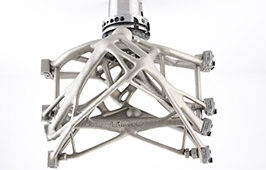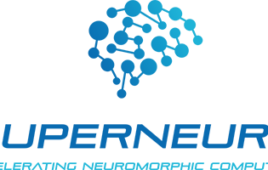
The R&D World Index (RDWI) for the week ending January 14, 2022, closed at 5,520.70 for the 25 companies in the RDWI. The Index was up 0.89% (or 48.45 basis points) from the week ending January 7, 2022. The stock of 18 RDWI members gained value from 0.03% (Facebook) to 5.11% (Toyota Motor). The stock of seven RDWI members lost value from -0.46% (IBM) to -5.93% (Eli Lilly & Co.).
About a year and a half after the Abraham Accords between the United Arab Emirates (UAE), Israel and the United States were signed on August 13, 2020, in Washington, D.C., roughly $100 million has been invested by UAE sovereign-wealth funds in venture-capital firms in Israel’s technology sector. Trade between the UAE and Israel is expected to reach $2 billion in 2022, up from about $250 million in 2019, according to the UAE-Israel Business Council, which represents about 6,000 UAE and Israeli businesspeople. Israeli and UAE companies are each investing in new offices and moving staff between the two countries. UAE firms are also positioning themselves as partners for Israeli expansion into the rest of the Middle East.
A report released last week from London-headquartered accounting firm Deloitte noted that returns on investment in pharmaceutical R&D in 2021 rose 7% from 2.7% in 2020, the largest annual increase since the Deloitte study began in 2010. The report also reveals a rise in peak pharmaceutical sales per asset, reduced costs of development (from $2.4 billion/new drug in 2020 to $2.0 billion in 2021) and reduced cycle development times. The average cycle times decreased year-on-year for the first time since 2016, declining to 6.9 years in 2021 from 7.14 years in 2020.The report noted that the COVID-19 vaccine development process may serve as a blueprint for pharma to plan, design and execute more efficiently across R&D portfolios. Also, about half of the report’s forecast revenues in late-stage pipeline products were being generated through collaborations and scientific partnerships. The report’s results also revealed the first increase in pharma R&D productivity, following a decade-long decline.
Japan’s second-largest pharmaceutical company (behind Takeda), Daiichi Sankyo, Tokyo, last week announced that it was shutting down its Plexxikon R&D operation in South San Francisco. Plexxikon’s current drug pipeline programs will transfer over to Daiichi, but the site and its 60 researchers will no longer be part of the drug maker’s plans. The closure allows Daiichi to focus future R&D investments on three antibody-drug conjugates (ADCs) which are being developed at other Daiichi global R&D units. Daiichi sees a significant expansion of its commercial ADC portfolio over the next several years, especially in non-small cell lung cancer applications.
China’s multinational technology firm Huawei Technologies, Shenzhen, last month stated that U.S. export restrictions had pushed its 2021 revenue down by a third from its 2020 revenue. In response, Huawei has invested in 56 semiconductor supply chain companies through a fund, Hubble Technology Investment, it launched in 2019. Nearly half of those investments, estimated to be in the tens of millions of dollars for some, have been made in the past six months. According to semiconductor industry analysts, these investments are comparatively small in a capital-intensive industry.
The world’s largest contract semiconductor manufacturer, Taiwan Semiconductor Manufacturing Co. (TSMC), Hsinchu, Taiwan, announced last week, that it would increase its investment to boost production capacity by up to 47% or $44 billion in 2022, up from $30 billion in 2021. TSMC, Intel and Samsung accounted for nearly 60% of the $146 billion chip makers spent on new production capacity in 2021, according to research firm Gartner Inc. TSMC’s revenues are expected to increase by more than 25% in 2022 from 2021 due to increased demand from the automotive and telecommunications sectors and more. TSMC is currently building a $12 billion production plant in Phoenix, and another $7 billion plant in southern Japan. TSMC has also said it plans to build other plants in Nanjing, China and in Taiwan.
The U.S. Department of Labor last week announced that the U.S. consumer price index (CPI) rose 7% in December 2021 from the same month in 2020, an increase from 6.8% in November 2021. This was the largest yearly increase since June 1982 and marked the third consecutive month (October to December) in which the CPI exceeded 6%. The core price index, which excludes food and energy, rose 5.5% in December, more than November’s 4.9% increase.
Doctors at the University of Maryland Medical Center, Baltimore, transplanted a heavily gene-modified pig’s heart into a 57-year-old patient with severe heart failure on January 7 after receiving emergency authorization for the experimental surgery from the U.S. Food and Drug Administration (FDA) on New Year’s Eve. Dr. Christian Barnard performed the first human heart transplant 54 years ago and the patient survived for 18 days. With extensive research and drug development, current heart transplant patients now survive at least 10 years. The pig heart donor had several pig genes disabled to prevent acute rejection in this case and other genes were modified to prevent the donor heart from continuing to grow. Several human genes were also given to the pig to prevent clotting abnormalities. After more than two weeks, the patient is continuing to recover. While risky at best, this first step in minimizing the acute shortage of donor organs so far has been successful.
The U.S. Air Force last week entered into a strategic partnership with Boom Technology, Denver, to fast-track R&D on its Overture commercial airliner. The three-year $60 million contract was created through the USAF’s Strategic Funding Increase (STRATFI) and has been awarded under the USAF’s AFWERX technology accelerator program, which was created in 2017, and its commercial-based AFVentures division. Designed to run on 100% sustainable aviation fuels, the Overture aircraft is planned to accommodate 65 to 88 passengers at twice the speed of current airliners (1,100 mph). Overture is expected to be the first large commercial aircraft designed with net-zero emissions from day one. Overture manufacturing is expected to start in 2023 with roll out in 2025.
R&D World’s R&D Index is a weekly stock market summary of the top international companies involved in R&D. The top 25 industrial R&D spenders in 2019 were selected based on the latest listings from Schonfeld & Associates’ June 2020 R&D Ratios & Budgets. These 25 companies include pharmaceutical (10 companies), automotive (6 companies) and ICT (9 companies) who invested a cumulative total of nearly 260 billion dollars in R&D in 2019, or approximately 10% of all the R&D spent in the world by government, industries and academia combined, according to R&D World’s 2021 Global R&D Funding Forecast. The stock prices used in the R&D World Index are tabulated from NASDAQ, NYSE and OTC common stock prices for the companies selected at the close of stock trading business on the Friday preceding the online publication of the R&D World Index.






Tell Us What You Think!